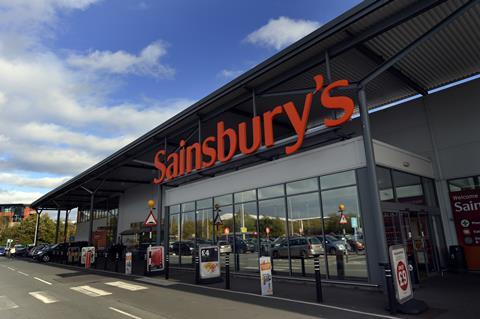Despite marginal fall in food inflation, consumers are having to change the way they shop
Grocery price inflation has dropped marginally, but less than many people would have hoped.

According to figures from Kantar, grocery price inflation fell slightly to 6.8 per cent in January, down from 6.9 per cent in December 2023. The softer decline compares with a 2.2 percentage point decrease seen between November and December 2023.
Take-home grocery sales grew in value by 2.9 per cent over the four weeks.
Fraser McKevitt, head of retail and consumer insight at Kantar, explained: “All eyes are back on inflation again, after the Consumer Prices Index’s (CPI) unexpected jump earlier in the month. There’s been a lot of speculation about the impact the Red Sea shipping crisis might have on the cost of goods, but the story in the grocery aisles this January is more about the battle between the supermarkets to offer best value, rather than geopolitics.”
Retailers have taken their foot off the promotional gas slightly so far this year, Kantar observed, which has meant inflation hasn’t fallen as quickly. Items bought on offer accounted for 27 per cent of all grocery spending in January, versus 32 per cent in December.
With inflation remaining stubbornly high, shoppers are changing their behaviour to better manage their costs, according to McKevitt. “There’s evidence to suggest that people are opting for more homemade meals to keep budgets in line, he said. ”86 million more lunchboxes were taken out of home last year, for example.
“Looking ahead to February, it will be interesting to see how this plays out on Valentine’s Day, and if couples will opt for more low-key celebrations. This was certainly the case in 2023, when we saw a massive £43m spent on supermarket meal deals costing £10 or more in the week before the special day.”
Sales of own-label plant-based ranges increased by 8 per cent on the month, as Veganuary got underway. “Health always comes to the fore as a priority for consumers in January, but what’s interesting this month is that we’re not seeing as big a spike in health-related categories as we have done in previous years,” McKevitt said. ”That’s because people are now buying more of the typical January ‘health kick’ items throughout the year. Nine per cent of annual own-label plant-based sales were made in January in 2023, a steady decline compared with the 11 per cent of sales in 2020.”
Battle for share intensifies
Both Sainsbury’s and Tesco gained market share over the 12 weeks to 21 January 2024 compared with a year ago. Sainsbury’s increased sales by 8.1 per cent to take 15.7 per cent of the market, 0.3 percentage points higher than last year, while the UK’s largest retailer Tesco grew by 6.3 per cent and now has a share of 27.6 per cent, up from 27.5 per cent.
Lidl was the fastest-growing grocer in Britain for the fifth month in row and the only retailer to see double-digit growth in the latest 12 weeks. Spending at the discounter was up by 11.9 per cent, bringing its share of the market to 7.5 per cent.
Aldi also grew ahead of the market, with sales up by 7.2 per cent, and increased its share by 0.1 percentage points to 9.3 per cent.



